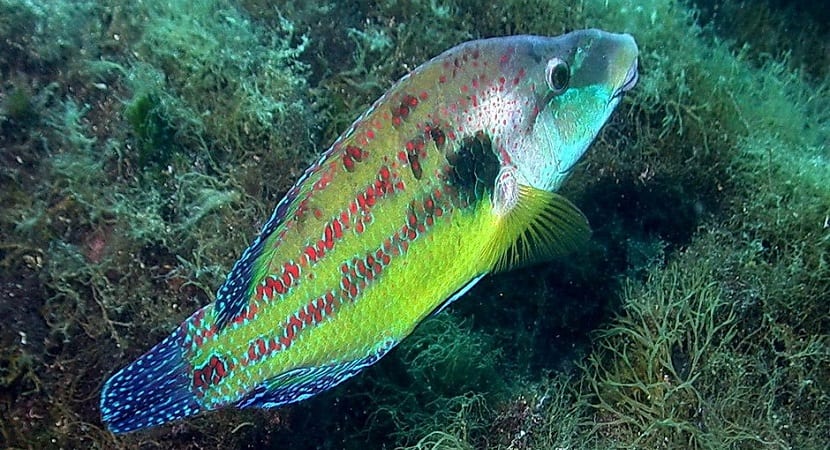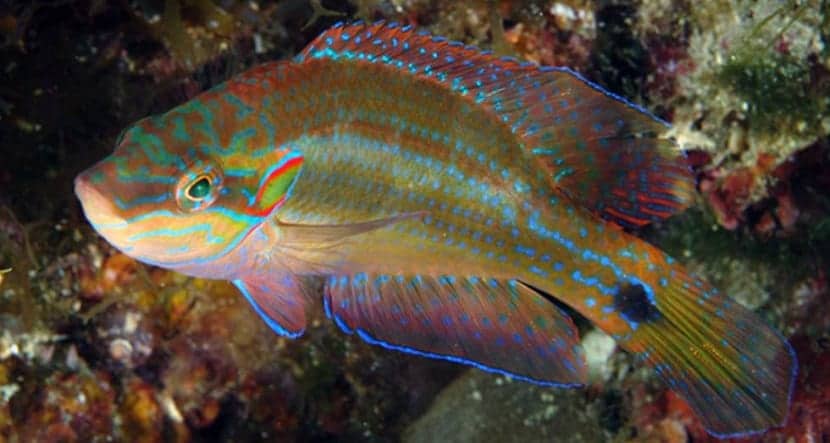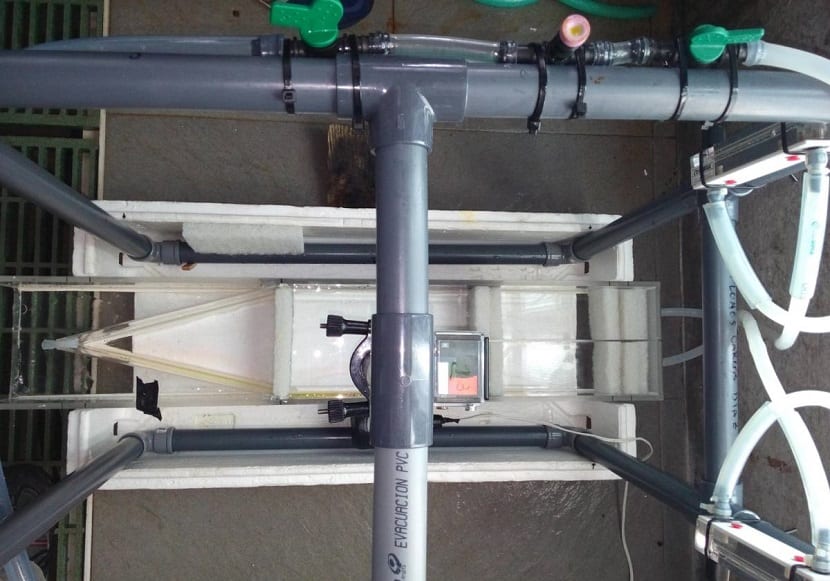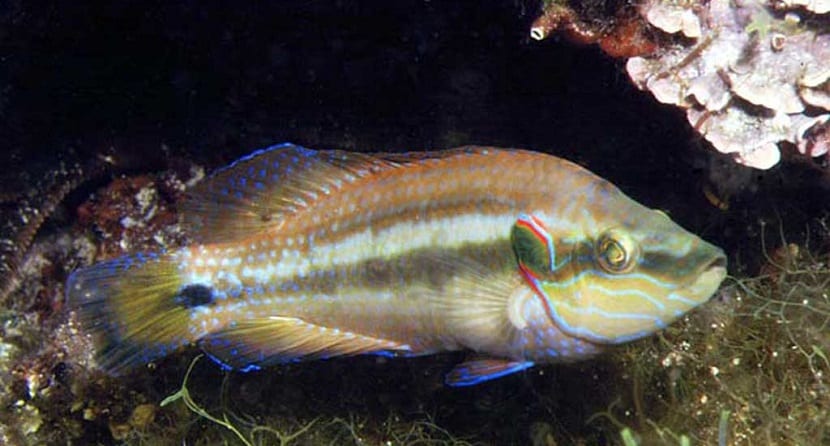
There are numerous species of fish that are or are not more vulnerable to environmental changes that occur in the environment where they live. Some respond well by adapting and others do not do so well and end up dying.
There is a species of wild fish that is very abundant in the Mediterranean Sea that are very fast swimmers and are able to smell their predators underwater. However, with contamination, any change in the smell of the water can affect the escape of this fish. How does the smell of water affect these fish?
Thrush juveniles

These fish can reach a size in their adult phase of about 45 cm long. It has an elongated body, ending in a muzzle with large, fleshy lips. As for its color, it is usually between greenish and brown and is characterized by having blue and red dots arranged in lists. As I mentioned before, lives in the Mediterranean Sea in the kelp beds of the seabed. They also live on rocky and sandy bottoms, although they can be seen on the surface.
Thrush fish are hermaphroditic and females reach sexual maturity at two years of age. Many of these females end up being males after another year. The breeding season is between May and June in which the females lay their eggs on rocks that are covered in algae. The males are in charge of watching over the eggs, although they do not renew the water or build the nest.
These fish make a greater number of jerky movements when they are able to smell food or its predators.
Research on the odor of water in juvenile thrush

A team of scientists from several centers has carried out a study on the influence of the smell of water on fish. The research team has been led by the Balearic Oceanographic Center of the Spanish Institute of Oceanography (IEO). In order to carry out this research, the researchers have used a system that selects the flow of water and allows two different bodies of water to be differentiated in the same space without mixing. In this way they can see in the same place, how the smell of the water affects the fish.
The study is based on the behavior of the fish before the different smells that the water can have. These odors can be altered for multiple reasons such as marine pollution from spills. Despite the popular belief that fish have little sense of smell (since they live underwater and without lungs, the idea that they have smell is not well conceived), the olfactory system of fish is very complex, almost like that of humans.
adam gouraguine, is a doctoral student at the University of Essex, United Kingdom, with a stay at the Oceanographic of the Balearic Islands and is the main author of the study. Adam explains that several scientists have been using this technique since the 2000s to be able to see how the smell of water affects the behavior of fish. This experiment consists of introducing the thrush fish into the flow selection system and exposing it to different odors. As the fish responds to smells, its behavior is recorded. The bodies of water in the system do not mix, however, the fish can swim freely through all of them. In this way, the fish can choose the body of water that it “likes” the most.
Until now, what scientists have been studying has been how long fish stayed in the same body of water without moving. But on this occasion, the main novelty of the investigation is that it is about the first time this behavior has been studied, but in a Mediterranean species. The previous times it has been done in tropical species.
Results and a second test

Juvenile thrush did not show any preference for any particular body of water. The age of the fish they used was between fingerlings and adults, so they accept the threat, they behave differently, but they assume the risk. Given this result, the research team was going to decide to conclude the study. However, a further step was taken to study not only the time the fish spent in each body of water, but also how the fish behaved in each flow. For example, one of the variables that was studied was the speed with which the fish moved within the different bodies of water and the number of sudden movements it made within them.
Once this second test was carried out, it is where the experts realized how complex the smell of the fish is since the speed at which the fish move can be an indicator of how the fish feels in each scenario. The test consisted of testing the behavior of the juvenile thrush in five bodies of water with different odors: predator, Posidonia oceanica, algae, fish of the same species and a last filtered and clean water. Each of the five tests, one for each aroma, was carried out with 30 different fish, one at a time. Because the thrush is a wild species, it was not possible to keep the fish in captivity for too long since there was a risk that the fish would learn that the predator smell did not come from a real one. Between catching the fish and conducting the experiment, the researchers allowed a period of 24 hours for the thrush to release stress and get used to the fish tanks.
The result was a change in the behavior of the fish. with more abrupt movements in the waters with the smell of predators or food. This responds to a defense mechanism that is related to flight and food. It was also observed that in the waters with the smell of fish of the same species, the behavior did not change in speed or amount of sudden movements. This indicates that in water where there are fish of the same species they feel safe and swim more slowly.
As you can see, the olfactory system of fish is very complex and it is necessary to study not only how long the fish is in each body of water but also what they do within it.